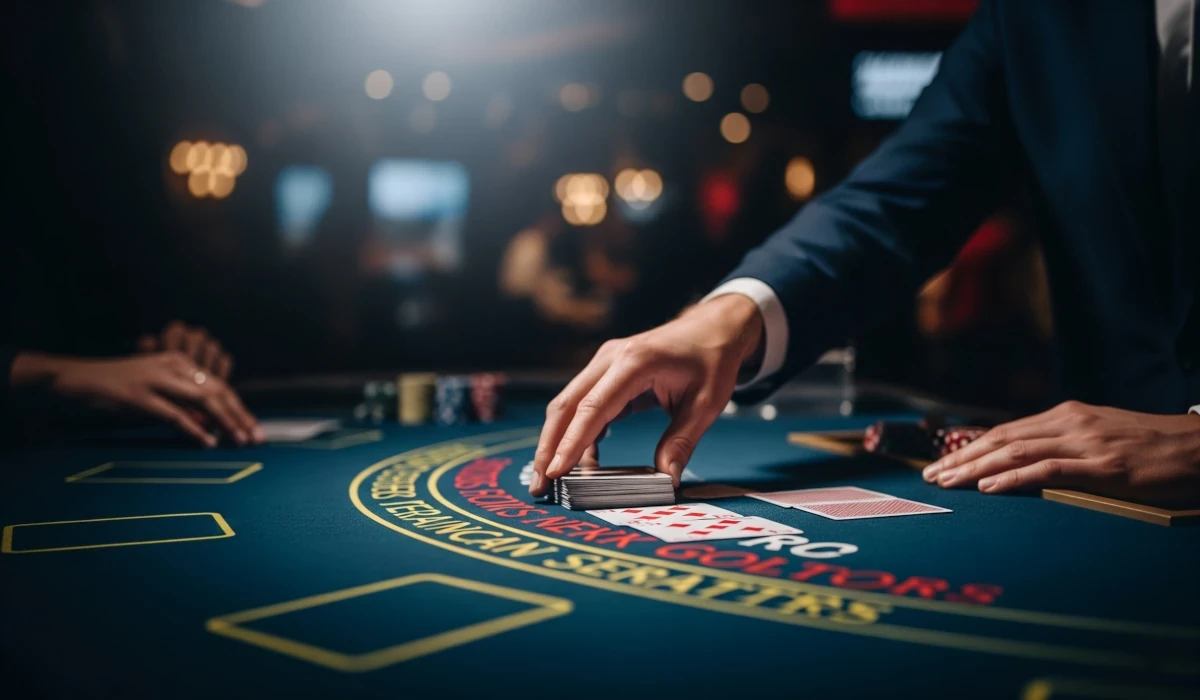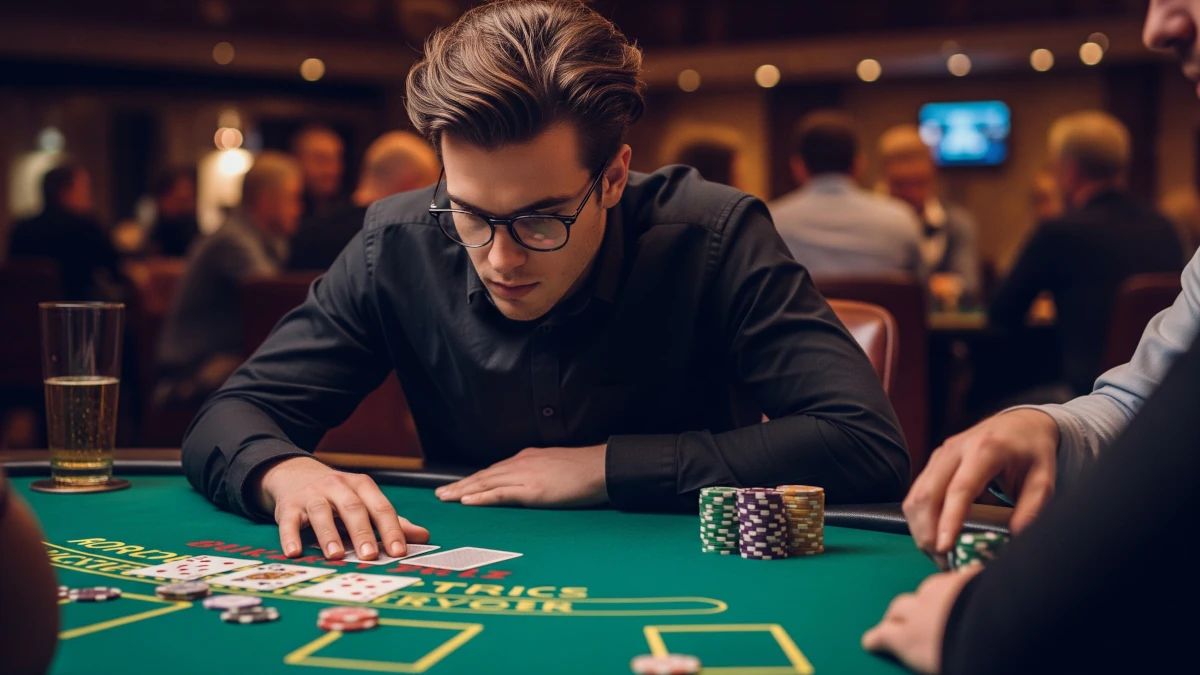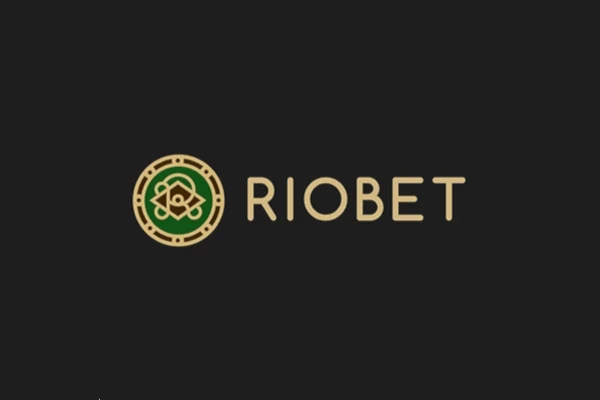
How to Play Blackjack: The Mathematics Behind Strategy
🗝️ Key Takeaways
- Building a solid foundation: Begin by developing a sound understanding of the Blackjack rules, card values, and terminology.
- With basic strategy and knowing when to hit, stand, double down, or split pairs, you can maximize your possibilities of winning and reduce the house edge.
- Understanding the math of probabilities and expected value can polish your strategy and make your bets more precise.
- Diving into card counting and rule variations lets players tailor their strategy to new environments and eke out every possible edge.
- Bankroll discipline and emotional control are essential for long-term success and allow players to avoid rash decisions and preserve their funds.
- Smart table selection, such as looking at table rules and players, provides players with an atmosphere that suits their competence and enhances their play.
To know how to play blackjack is to understand that the objective is to get as close as possible to 21 without busting.
Everybody receives two cards, including the dealer. Number cards two to ten are worth their number, face cards are worth ten, and aces can be one or eleven.
Players can hit, stand, double down, or split depending on their cards and the dealer’s card.
🎮 The Game's Foundation
Blackjack is a numbers game, one of skill and fast action, often referred to as a casino banking game. The objective is to defeat the dealer's hand without busting, which is a critical aspect of optimal blackjack strategy.
You don't play against the other players at the table; your focus should be on the dealer's blackjack and understanding how the dealer behaves, as this knowledge is crucial to your strategy.
🎯 Game Objective
The fundamental objective in blackjack is to have a hand closer to 21 than the dealer. If your cards total more than 21, that's a bust, and you lose regardless of the dealer's hand.
Here, you must decide to take a hit or stay, continually aiming not to bust but still beat the dealer.
Rounds can be won if you get a "Blackjack" — an ace and a 10, Jack, Queen or King — or if the dealer busts first. It's equally important to examine the dealer's upcard, that single card the dealer reveals, to inform your next move.
To illustrate, if the dealer has a low upcard, such as a 4 or 5, you may want to stand on a lower total because there's a greater probability that the dealer will bust.
🃏 Card Values
| Card | Value |
| 2-10 | Face value |
| Jack, Queen, King | 10 |
| Ace | 1 or 11 |
Aces are unique. You treat them as 1 or 11, taking whichever keeps you under 21.
This is what makes ace hands, or "soft hands," versatile. So, if you get an ace and a 10 as your first two cards, that's a BlackJack, which pays better than a normal win.
In either case, knowing the worth of each card assists you in tallying your hand total quickly so you can make a decision.
🔑 Key Terms
Certain terms and terminologies pop up frequently in blackjack. 'Bust' means your hand is more than 21. If you 'hit', you request another card; if you 'stand', you stay with what you have.
Basic strategy is a hard-coded, math-derived set of rules that help you decide when to hit, stand, double, or split. There are "side bets," additional wagers that make you win in specific, but often riskier, scenarios.
Typical dealer hits and stands are stands on all 17s or hits on a "soft 17," which means the dealer will continue to draw cards if their hand is an ace plus a six.
♟️ Table Dynamics
The majority of blackjack tables accommodate 2 – 7 players. The game employs one to eight 52-card decks.
The dealer always gets two cards: one face-up and one face-down. If the dealer busts, every player who didn't bust wins and gets paid back plus the same amount.
House rules can always change, so make sure to always check.
📝 How to Play Blackjack
Blackjack is a well known card game where your objective is to accumulate a hand value closer to 21 than the dealer’s hand without exceeding that number. Utilizing a standard 52 card deck, with face cards valued at 10 and aces at 1 or 11, understanding the optimal blackjack strategy enhances player blackjacks.
Knowing the steps of play allows blackjack players to make smarter decisions and increase their odds.
1. Placing Bets
First, consider your bankroll and the table’s minimum and maximum bet. Select your wager and set your chips in the designated spot prior to cards being dealt.
How much you bet can alter your entire strategy. Minimum bets set the risk tone, while higher bets can equal higher rewards or losses.
If you know the rules and flow, increase your bet when you’re confident about your play or decrease it to be cautious. PS, changing up bets is typical once you’re accustomed to the game’s rhythm.
2. The Deal
The dealer mixes and deals two cards to everyone including themselves. Players receive both cards face up. The dealer’s initial cards consist of one card dealt face-up (the upcard) and one card dealt face-down (the hole card).
What the dealer has up matters — if it’s an Ace, you can buy insurance, a side bet that pays 2 to 1 if their hole card is a ten. If your initial two cards are an Ace and a ten, you’ve hit Blackjack, the optimal beginning.
For example, if you’re dealt a pair of 8s, you can ‘split’ them into two hands by making an additional bet that is equal to your original one.
3. Your Turn
Hit or stand on your hand’s total. If you bust 21 you lose, so cautious calculation is essential. Smart players observe the dealer's up card.
If the dealer turns up a low card (2–6), standing on a lower total can be wise. If the dealer is strong, you should hit. Hitting increases your busting odds, so consider every decision.
Give the dealer hand signals—tap the table to hit, wave to stand—so they know your decision and the game remains fair.
4. Dealer's Play
The dealer has to hit on 17 or below. If the dealer’s hand is a “soft 17” (Ace and 6), certain rules specify that they must hit again, which increases the chances of them busting.
Dealer busts – all remaining players win. If you and the dealer have blackjack, it’s a push.
Push means your bet is returned.
5. The Outcome
When all turns are complete, hand values are compared. The nearest to 21, without going over, wins.
Blackjack pays 3 to 2, and winning pays even more money. Blackjack pays 3 to 2, and if you lose, your bet is dead.
If the dealer busts, everyone still in the round wins. Pushes or ties push your bet back to you so you stay in the game.

⚡ Natural Hands Explained
A natural hand in blackjack means a player holds a total of 21 with only two cards: an ace plus a card worth 10 points—either a 10, jack, queen, or king. That’s the very best hand in the game of blackjack, a "blackjack."
It is uncommon and powerful, establishing the template for the remainder of the round. If a player has a natural, they win unless the dealer has a natural as well. Then it’s a push, and no one wins.
If only the player has a natural, most blackjack tables pay extra, often at a 3:2 ratio, so if someone bets 10 euros, they get 15 euros back plus their original bet.
The Ace is unique. It can hold a value of either 1 or 11. In a natural, the Ace is always counted as 11.
That’s what makes the Ace plus a 10-value card so powerful. No other two-card hand can defeat it.
For instance, a combination of 9 and a 10 only equals 19—good, but not as good. A three-card 21 is not considered a natural; only a two-card 21 qualifies as such.
Dealers have rigid rules for naturals. If the dealer’s upcard is an Ace or 10, many casinos peek for a natural immediately, which saves time and keeps play fair.
If the dealer has a natural, all bets lose unless the player also has a natural. If both have naturals, it results in a push.
When the player’s hand is natural and the dealer is not, the round finishes immediately, and the player is paid.
Understanding how naturals work provides blackjack players with a distinct advantage. It informs them when a game ends prior to starting and highlights the significance of the initial two cards, which are crucial in determining the correct strategy for the round.
💡 Master Your Decisions
Much like winning at blackjack, deciding when to dominate the table is a matter of reading it well. Mastering the fundamentals is just the beginning.
The real art is mastering the timing — when to take risks and when to deploy your trick plays with confidence.
Practice, strategy chart memorization, and close study of house rules decrease your chances of error, particularly in the rush of a live game. Knowing the house edge and surrender option, plus the discrepancies between practicing and playing in a casino, keeps your attention keen.
- Double when your hand value and the dealer's upcard indicate you should.
- Always split 8's, never 5's or 10's.
- Use basic strategy charts to guide decisions under pressure.
- Surrender early, if the rules allow, to minimize losses.
- Memorize key plays for pairs and soft totals.
- Avoid insurance bets unless you count cards.
- Adjust strategy based on specific table rules and conditions.
🤔 Hit or Stand
When to hit or stand shapes your blackjack results. It's not merely your instinct for this decision; it depends on your card count and the dealer's upcard.
For instance, standing on 16 versus a dealer 6 is smart, but hitting versus a dealer 10 could be smarter. Bust risk shoots up as your total approaches 21.
If you have 12 and the dealer has a 2 or 3, it's borderline—basic charts indicate what to do. Slips occur more frequently in dice casinos than in rehearsal, so memorizing matrices truly rewards.
Long-term, keeping disciplined with these decisions yields more consistent results. Tiny mistakes multiply over hundreds of hands, influencing your winning percentage.
💰 Double Down
Doubling down means you double your bet but receive only one more card. It's a hard-hand move, such as 11 vs a dealer's 6.
At this location, your chances of hitting increase.
Double down only when the dealer's upcard is weak—like a 5 or 6. The danger is that you could pick a low card and overlook a big winner.
Certain tables restrict when you're able to double, so be sure to look over the house rules prior to playing.
✂️ Splitting Pairs
Splitting pairs allows you to convert a losing hand into two winning ones. If you receive a pair of 8's, divide them—two hands starting at 8 surpass one at 16.
You have to make a second wager equal to your initial.
Not all pairs were created equal. Split Aces, but never split 10s. Specific tables only allow you to draw a single card when splitting Aces, so familiarize yourself with the regulations.
Dividing intelligently increases your opportunities for victory. Learn which to split and memorize them prior to playing.
🛡️ Insurance Bet
Insurance is available when the dealer displays an Ace. It pays 2:1 if the dealer holds blackjack, but it's not usually a smart bet unless you track every card left.
The odds are stacked against you most of the time.
Insurance can reduce your total edge, so most strategy guides recommend avoiding it. The fast reward is seductive, but it almost never strikes in the end.
📊 The Math Behind Winning
Blackjack is a game of probability and data-informed decisions, particularly in the context of various blackjack variants. Whether to hit or how much to bet, every choice is influenced by mathematics, rewarding blackjack players who can implement the optimal blackjack strategy and make the correct decisions.
📋 Basic Strategy
The basic strategy is the set of best moves for any hand you receive, derived mathematically. Playing these moves every time can shrink the casino’s edge to approximately 1% or less.
This isn’t a guess - it’s based on stats from millions of hands played and recorded.
The concept is to behave to maximize the probability of winning or, at a minimum, minimizing your loss. For instance, if you have a 12 and the dealer has a 2 or 3, the numbers say to hit, even if it seems dangerous because the chances of busting are less than the dealer making a big hand.
A basic strategy chart tells you the correct action for every hand you’re dealt and each dealer up card. These charts are available free online, and numerous players recommend printing one out before taking a seat.
The chart shifts slightly with various rules, such as if the dealer stands on soft 17 or you can double after splitting. Adhering to basic strategy—no matter the table—increases your long term outcome and reduces stupid errors.
🏦 House Edge
| Factor | Effect on House Edge |
| Number of decks | More decks, higher edge |
| Dealer hits soft 17 | Increases edge |
| Double after split allowed | Lowers edge |
| Payout for Blackjack | 3:2 better than 6:5 |
The house edge is derived from intrinsic game rules which provide the casino a minor yet consistent lead. Even assuming perfect play, the rules define the odds.
For instance, using more decks increases the difficulty of tracking high cards, thus reducing the utility of card counting. When the payout for a natural Blackjack drops from 3:2 to 6:5, the house edge jumps.
Choosing games with better rules, like those that pay 3:2 for Blackjack and let you double down after splitting, is key. Playing smart is hunting for these good rules.
💸 Expected Value
Expected value (EV) refers to how much you’re going to win or lose on average with a wager. In Blackjack, EV guides you to select plays that earn or preserve the most money over time.
For example, if you stand on 16 versus a dealer’s 10, the math says you’ll lose less over time than if you always hit. For example, say you have 12.
The probability of drawing a 10 (or face card) and busting is approximately 30%, as roughly a third of the cards are 10-valued. If you play an EV-based strategy, you factor in this risk each time.
When the EV says the loss is smaller by standing, you stand. When the EV says to hit, you hit—even if it unsettles you. Over hundreds or thousands of hands, these decisions mold your final result.
🎲 Probability in Play
High cards count most in Blackjack. There are 16 tens in a deck and just 4 Aces.
This implies that roughly a third of all cards are 10s or faces. Being smart about watching what aces remain helps expert players estimate the odds of drawing a Blackjack or going bust.
Card counting–keeping an eye on the proportion of high and low cards–can assist, but it’s difficult, particularly with a large number of decks. Smart players use math to guide every move.
🚀 Beyond Basic Strategy
Beyond basic strategy takes you deeper into how you can skew the odds closer to even. With card counting, the house edge can fall to around -0.5%.
This means your skill counts way more, and every choice could shift your result. Mastering this level of play involves mastering the intricacies of card counting, rule variations, and bet selection.
🔢 Card Counting
Card counting involves tracking the proportion of high cards to low cards that are still in the deck. Most systems, such as the simple high-low count, have you add one for each low card (2-6) you see and subtract one for every high card (10, J, Q, K, A).
When the count rises, it’s an indication that there are more high cards remaining, which benefits the player. A 1–6 bet spread is solid for a double-deck game, and 1–12 works well with a 6-deck shoe.
The true edge appears at a count of 31+ per round, so that’s when it makes sense to max your bets. Others employ “Speed Count” or “Card Counting Lite,” monitoring only Aces and 5s for an easier count.
KO Rookie counts skip division, so you don’t have to convert Running Count to True Count. In multi-deck games, each card has less impact, so you need to count even more rounds for the same advantage.
A lot of casinos monitor for counters and practice to be unobtrusive. Though card counting isn’t illegal, casinos can eject counters.
⚖️ Rule Variations
The rules of Blackjack can differ from one casino to another, and rule tweaks can transform the house edge quickly. Some games allow doubling down even after a split, and others prohibit it.
Some employ six or eight decks, which moderately increase the house advantage over single or double decks. European Blackjack, for instance, initially only provides the dealer with one card whereas American style deals two.
Surrender rules and how many times you can split matter, too. Understanding every rule enables you to tailor your strategy.
If the game is played with more decks, the impact of each card is reduced, thus count values or bet spreads must shift. Always read the posted table rules and check the payouts for a natural blackjack, which can go from 3:2 to 6:5 in some places, hurting your odds.
🧩 Betting Systems
While many advanced players use betting systems to control risk and attempt to maximize gain. The Martingale strategy, which involves doubling your wager following every loss, is widely recognized yet comes with significant risks.
The Paroli system makes you increase bets after wins. Both have strengths and downsides: Martingale can drain your bankroll during a losing streak, while Paroli can lock in gains but miss big swings.
Systems keep your betting under control, and units keep the emotion out. Experiment with various methods, such as flat betting or minor steps of progression, to determine what maintains your comfort and control the best.
Betting systems can’t eliminate the house edge, but they do define your experience.
🧠 The Player's Mindset
Blackjack is a numbers game, but your mindset determines your performance. A powerful player mindset is about more than understanding the guidelines.
It's about being savvy, playing your bankroll, and making rational decisions, not emotional ones. New players think a ten-ace hand is an automatic win, but actual skill comes from knowing the worth of every hand and approaching every action as an opportunity to gain an advantage.
Pros and novices play the same hands roughly 99% of the time, but it's those couple of key decisions—splitting a pair of 3s or doubling down on 11—that determine long-run results.
Below is a checklist to reinforce the attitude and habits that set expert players apart:
- Set clear, realistic goals for each session.
- Track your wins and losses to avoid chasing losses.
- Master fundamental strategy and drill until your moves are automatic.
- Embrace wins and losses as the game, not as a result of your talent or fortune.
- Step away to reset your mind — particularly after a brutal defeat.
- Silence the noise and focus on the felt.
- Remain hungry, and keep educating yourself with every hand, whether it's a winner or a loser.
💰 Bankroll Management
Establishing bankroll limits is crucial for determining the amount you can lose without anxiety, especially in blackjack games. This practice prevents snap decisions that could lead to larger losses.
By splitting your buy-in for each session, whether you're at several decks or playing a single deck game, you ensure that you're never risking it all.
Scale your bets according to your bankroll. If you experience losses, reduce your wager to preserve your bankroll, allowing you to continue enjoying your player blackjack experience.
When winning, increase your bet only within your prescribed limits, ensuring you last longer at the table and keep the fun in this popular casino banking game. Record your wins and losses diligently. This not only helps in recognizing when to stop for the day but also aids in developing optimal blackjack strategy over time.
🧘 Emotional Control
Emotional discipline keeps you from pursuing losses or betting huge after a win. Upset or stressed decisions lead to bad decisions, like hitting 16 against a dealer's 7 or not splitting 2's, which usually results in the house having an advantage.
If you sense your feelings interfering, step back for a spell. Taking deep breaths or a short walk can help you reset.
Remaining focused on your strategy rather than the result keeps your decisions consistent. Cultivating a good attitude can make it more fun and make you believe you're the best, even if you're on a losing streak.
🎨 Table Selection
Selecting an appropriate table means seeking rules that benefit you. Certain tables allow you to double down on any two cards or re-split pairs multiple times, which increases your probabilities.
Select tables with limits that complement your bankroll so you don't gamble too heavily. Observe how the dealer operates the game.
A quick dealer or loud table can put you under pressure, so seek out a space where you can consider your moves calmly.
Observe how other players behave; if they play undisciplined, it may influence your own play. By being aware of the mood at the table, you will be less likely to make errors and derail your strategy.
🔒 Conclusion
Blackjack is a quick, acute game. Every hand is a mix of math, luck and skill.
Play smart, not hard. The best players apply easy math, table sense, and keep a cool head.
Good judgment always trumps luck in the long run. Attempt to trace your wins and losses in real-time and study every hand.
As with many pros, they get back to the basics and add new tricks incrementally. No one wins every hand, but clever play takes off in the course of time.
Keep studying, experimenting, and spreading the word. Level up, step to a table, and test your skills.
Frequently Asked Questions❓
What is the main goal in blackjack?
Your objective in this card game is to achieve a hand value closer to 21 than the dealer blackjack, without exceeding 21.
How are cards valued in blackjack?
In blackjack games, cards 2 through 10 hold their face value, while face cards are valued at 10. Aces can count as either 1 or 11, depending on which best aids the player's hand.
Can I win at blackjack using only luck?
Blackjack is a casino banking game of both luck and skill. While card dealing is random in many casinos, employing the optimal blackjack strategy increases your chances of coming out ahead.
What is basic strategy in blackjack?
Basic strategy in blackjack games is a mathematically derived set of rules that guide players on when to hit, stand, split, or double down based on their cards and the dealer's card.
Should I always split pairs in blackjack?
No. Here’s the big one — only split pairs when it gives you a better chance of winning, like splitting Aces or Eights in blackjack games. Don’t split 10s.
Is card counting legal in blackjack?
Card counting is not illegal, but many casinos can ask you to leave if they suspect you’re using strategies like advantage play.
Can I play blackjack online safely?
Yes, but go with licensed and regulated online blackjack games for fair, safe play.





























